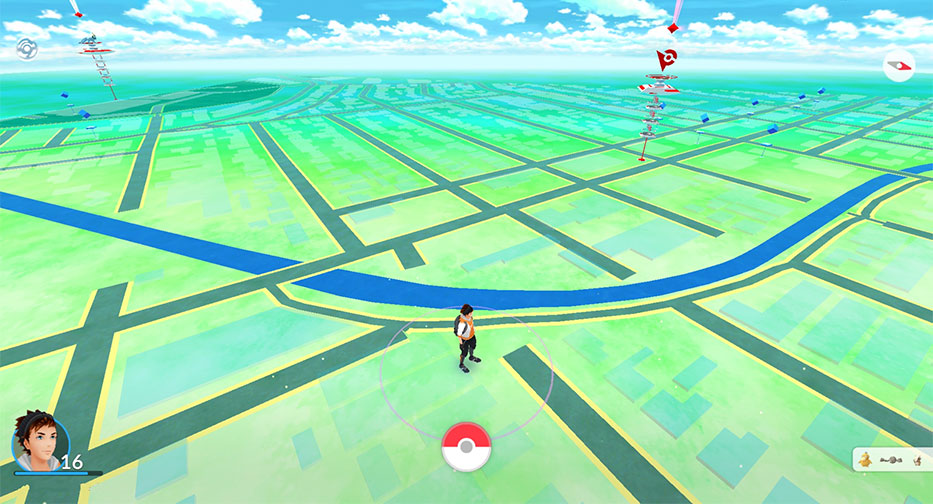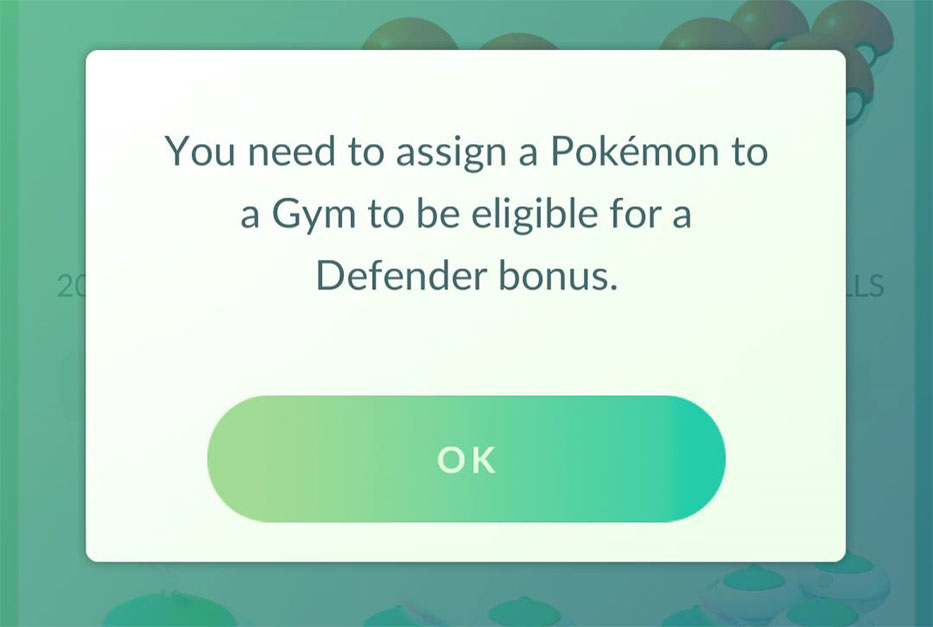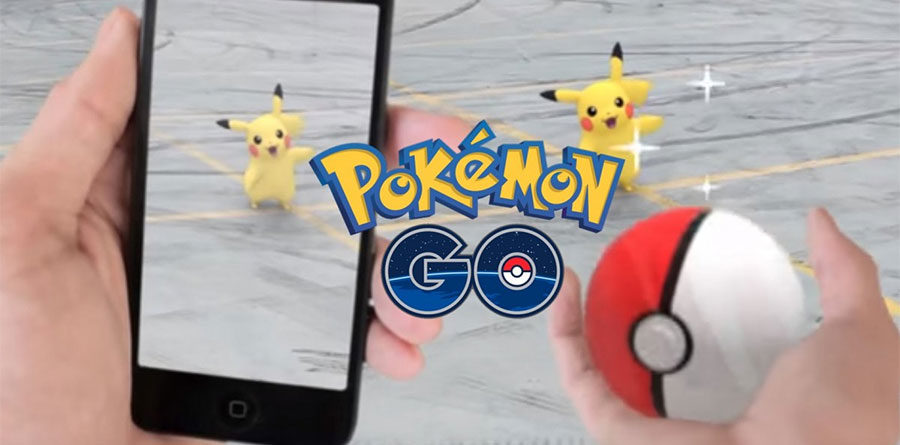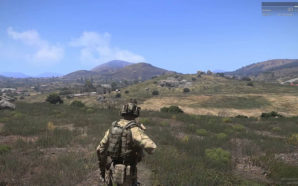Pokémon GO is still undoubtedly incredibly popular, both in terms of the numbers playing and in its spread throughout mainstream culture. Cafés and coffee shops are investing in lures to draw trainers in. Signs in public places such as parks are directly referencing the game. Pokémon GO has put augmented reality games on the map, so to speak, but it’s not been without hiccups, and serious concerns going forward. Interest in the game is waning, and this trend could continue. Here are some of the main issues dampening the game’s momentum.
Rural versus Urban

Look at all these Pokéstops…
Pokémon GO is great for city players. Terrible for those in small towns and villages. Cities have an overabundance of Pokéstops while small towns and villages have anywhere from none to a handful. City players have endless Pokéballs while non-urban trainers have to make do with a rapidly-dwindling supply. Pokémon themselves appear almost constantly in big cities, while in rural areas you’re lucky to see one every half hour, and even then it’s usually a Pidgey.
This is more than just a poor gameplay experience for non-urban players, it’s against the spirit of Pokémon. Do Ash and the gang sit in Starbucks with a pumpkin spice latté for three hours to find a Scyther?
Of course, it’s a difficult balance to strike, but Niantic’s system for deciding Pokémon spawns is decidedly profit driven. Naturally, there are far more players in cities, so their game experience is prioritised. While the ‘spirit’ of Pokémon sounds great, the reality is that not a great many players would be willing to trek out to the countryside on a regular basis. This is not because they are horrible, selfish, unhealthy people, but rather it is because our current economic system denies them the opportunity. Ash can spend all his time travelling across the land, searching far and wide because he apparently doesn’t need a job to sustain himself.
Indeed, the primary method of income in both the Pokémon series and the games is battling, so Pokémon training becomes the trainer’s full-time job. Pokémon GO players, on the other hand, need to work in industries other than Pokémon battling in order to feed and house themselves. Niantic’s system of Pokémon spawning works perfectly for those who sit in an office all day and can just pop a lure. It might not be very ‘Pokémon’, but it is an attempt to translate the Pokémon world order into the real world order.
Training

One day Charmander, One Day…
Levelling up and evolving Pokémon in GO feels extremely unsatisfying. The upcoming buddy system – walking alongside a Pokémon in order to gain candy – will hopefully do a lot to help, but we will have to see how it pans out. Currently, though, Pokémon training involves catching the same species over and over and over, grinding out large amounts of candies to evolve and train them. That means that if you’re not near a frequent spawn of your starter, you can forget about ever getting that Charizard. This is another big advantage for city players, who are far more likely to be able to find multiples of the same Pokémon.
As a system for levelling in general, it is not good, and not very Pokémon. The Pokémon ethos has always championed building bonds with your fighting pals. You’re meant to catch them, get to know them, train them, and stick with them. GO becomes a ruthless treadmill of catching every Pokémon you see, throwing the ones with poor CP (or IVs, if you’re into that) into the ominous ‘transfer’ tube, and keeping the strongest… Only to be replaced the next day when you find an even stronger one. When I reach the end of a Pokémon game, it feels like I’ve been through a lot with my party – and I have. In GO, I couldn’t give a toss about my Pokémon. Training feels cold and sterile; a game of numbers, grinding and luck.
Gyms Suck

The only use for gyms.
Simply put, the gym experience is terrible. You spend half an hour grinding down the prestige of a gym, finally beat it, and some twerp snipes it, plonking their 50 CP Magikarp in just to grab the defender cash-in. The battling system itself is buggy and horribly unbalanced. Successfully defending a gym is nearly impossible.
While the king of the hill style has potential in terms of building a sense of community within a team and providing persisting goals, it falls completely flat. I only take a gym so that I can cash in on my defender bonus, and then forget about it, because I know it will be taken within ten minutes. There’s little incentive to train a gym, because it rarely makes a difference in terms of actually defending, and there are no additional benefits after the bonus has been grabbed.
And that’s all before hackers and GPS spoofers are even mentioned.
The Future?
Pokémon GO falls short of everyone’s dream of Pokémon being real. Niantic can certainly be blamed for their abysmal communication and some poor decisions, but really the issue is that the world of Pokémon does not work the same way as the real world. If cities were full of nothing but Meowths, Pidgeys and Ratattas, office workers who rarely get time to take a trip out to the country will soon get bored of playing. Even if rural players had an abundance of spawns, it’s often the case that mobile signal isn’t even strong enough to play. And, in terms of return on investment, I don’t see it likely that shoving the good spawns to the country will actually cause urbanites to flee the city in droves every weekend.
For all its hype and potential, it is quickly becoming clear that Pokémon GO is struggling to be more than an awkward and unsatisfying augmented reality game with a Pokémon skin. Here’s hoping Niantic can make some big changes that matter.









